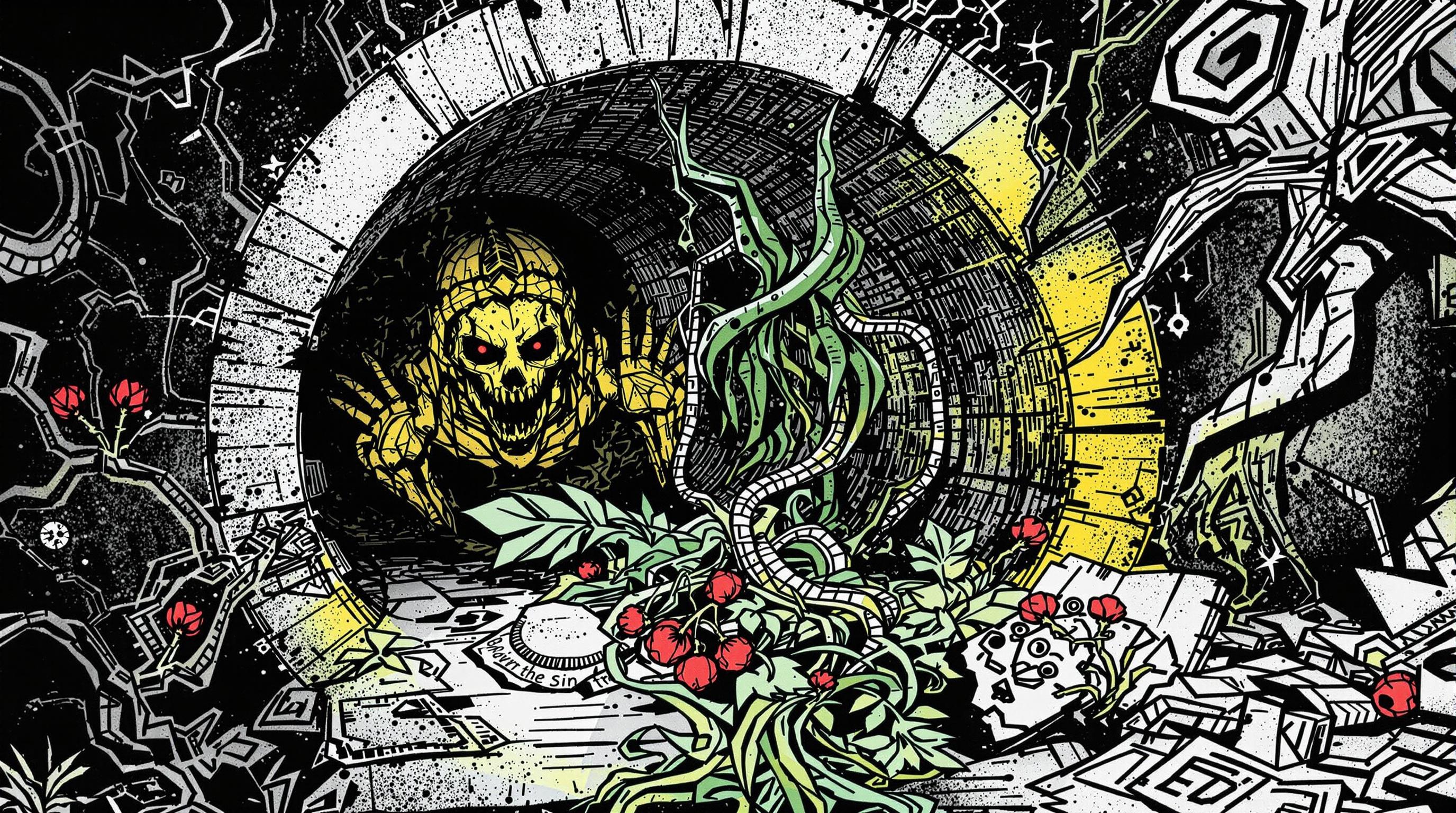Related Articles
- The Influence of Urban Legends: How Folklore Shapes Investor Behavior in Today's Financial Landscape
- The Role of Personal Narratives: How Your Story Shapes Investment Choices and Risk Tolerance
- The Ripple Effect: How Social Media Influencers Steer Investor Sentiment in Unexpected Ways
- Beneath the Surface: Investigating the Silent Influence of Underground Economies on Legitimate Market Trends
- Navigating the Bizarre: The Influence of Esotericism on Modern Investment Strategies and Market Speculation
- Rethinking Risk: The Surprising Link Between Urban Architecture and Financial Instability in Emerging Markets
Navigating the Bizarre: The Influence of Esotericism on Modern Investment Strategies and Market Speculation
Navigating the Bizarre: The Influence of Esotericism on Modern Investment Strategies and Market Speculation
In exploring the uncanny intersection between esotericism and modern finance, we uncover a world where ancient wisdom meets innovative investment strategies. This article delves into the surprising influence of mystical beliefs on market speculation, revealing how ideas from astrology to numerology find their place among stock analyses and cryptocurrency trends.
Understanding Esotericism
To grasp how esotericism has entwined itself into contemporary investment strategies, we must first define what we mean by the term. Esotericism refers to a variety of mystical traditions, secret knowledge, and spiritual philosophies that historically include practices like alchemy, astrology, and tarot reading. These esoteric practices prioritize intuitive understanding and metaphysical concepts, often perceived as alternative or fringe by the mainstream.
A Brief Historical Context
Surprisingly, the roots of esotericism in finance can be traced back to the late 19th and early 20th centuries during the rise of the Theosophical Society and other esoteric movements. It was a time when notable figures like Carl Jung began to explore psychological connections to these mystical practices. The stock market crash of 1929 saw a parallel rise in interest in astrology; at that time, market analysts like Susan Miller gained traction, using planetary movements to predict economic trends.
Modern-Day Astrology and Market Predictions
Fast forward to the present day, and you might find the likes of Wall Street analysts consulting astrological charts alongside economic indicators. During a particularly tumultuous period in February 2020, when the stock market was rife with uncertainty due to COVID-19, several astrologers predicted the pandemic’s economic fallout based on planetary alignments. While naysayers point to coincidence, it’s important to note that astrology-based investment newsletters have seen a significant uptick in subscriptions during crises.
The Case of Astrology, Cryptocurrency, and Speculation
Take, for example, the cryptocurrency market—often dubbed the "Wild West" of finance. Cryptocurrency traders frequently employ astrological analysis as a speculative tool. An article on CoinTelegraph showcased how crypto investors utilized lunar phases to optimize their trading schedules, exploring the belief that increased energy levels attributed to the full moon correlate with market volatility (Source: CoinTelegraph, 2021). Whether or not these claims hold water remains contested, but the psychological aspect of speculative trading deserves consideration.
Behavioral Economics Meets Esotericism
This brings us to a crucial aspect of understanding financial markets: human behavior. Behavioral economics posits that investors often act irrationally, swayed by emotions or cognitive biases rather than purely logical reasoning. Esoteric practices tap into this emotional dimension. For instance, studies suggest that trading decisions can be influenced by 'superstitions,' including numbers deemed lucky—like 7 in many cultures—leading to trading patterns that deviate from fundamental analyses (Source: behavioralresearchjournal.com).
Traders' Superstitions: More Common Than You Think
Check out the real-life anecdotes from seasoned traders who keep talismans or perform rituals before making critical trades. A trader based in Chicago, with over 30 years of experience, shared that he wouldn’t enter a position on a day he forgot to wear his “lucky” socks. He attributes several successful trades to this habit, despite knowing it's illogical. This quirky charm illustrates how irrational beliefs can coexist with sophisticated investment strategies.
Case Study: The Tarot Investor
One particularly fascinating case is that of a young woman in her late 20s—let’s call her Sarah—who built a successful investment portfolio using tarot cards. She has taken to drawing cards each month to inform her buys and sells. Her results garnered attention when, in May 2021, she reported a 150% return on investments, claiming she tinged decisions through tarot readings. While anecdotal, Sarah’s story raises eyebrows around the legitimacy of using esotericism in a realm typically governed by data-driven analyses.
Business Psychology and Intuition
Perhaps the most pragmatic take on this interplay lies in the acceptance of intuitive decision-making in business psychology. While pure data analysis remains critical, adopting intuition as a complement can lead to sound investment strategies. Professional trader and author Joe Faulks explains it succinctly: “Occasionally, intuition is your best ally—whether it’s informed by experience or, dare I say, a little esoteric insight.”
The Human Element of Investing
Much of the investment world is steeped in performance metrics like ROI, P/E ratios, and market capitalization, but let’s not forget the human element. Markets are driven by people, and assessing their behaviors and beliefs injects a different dimension to risk management strategies. Further, more investors are embracing holistic approaches, where intuition, emotional intelligence, and even esoteric insights can contribute positively to portfolio management.
Defining Risk: A Psychological Approach
In examining risk, the question arises: can esoteric beliefs enhance risk management? While conventional approaches focus on diversification and financial modeling, discussions in esoteric circles stress energies and intentions behind financial transactions. One study from the Journal of Financial Psychology suggests that investors who feel emotionally balanced and spiritually aligned tend to make more cohesive decisions, implying a potential connection between esoteric beliefs and financial success (Source: financialpsychologyjournal.com).
Conclusion: Embracing the Unconventional
Acknowledging the intersection of esotericism and finance allows a fresh perspective on investment strategies. From astrology to tarot, these non-traditional influences suggest that there’s room in the realm of serious investment for whimsy, intuition, and the acceptance of risk rooted in mystical practices. This is not to say that esotericism should replace effective financial analysis, but rather that the integration of diverse thought processes can lead to a more holistic view of investing. In the end, it may just be about embracing the bizarre while striving for profits.
Personal Reflections on a Whimsical Journey
At 22, I find the connecting threads between esotericism and modern finance thrilling. As a novice investor, I’ve occasionally pondered charting my zodiac sign alongside stock trends. Who knows? Maybe the stars are not just for navigating relationships but can also foretell financial futures in unexpected ways. Whether you're 16 or 70, the idea of being part of something more profound than mere profit can bring a sense of belonging to the strange world of investing.
Final Thoughts
While esotericism may appear bizarre in the context of modern finance, it stands as a testament to the myriad ways humans seek patterns, meaning, and control in the chaos of economic markets. Perhaps it’s time we loosen the grip on conventional wisdom and allow ourselves to acknowledge that the unpredictable nature of the market may sometimes require an unconventional lens. Whether it’s through reading the stars or trusting your gut, the heart of investing is undeniably tied to the human experience—flaws, quirks, and all.




